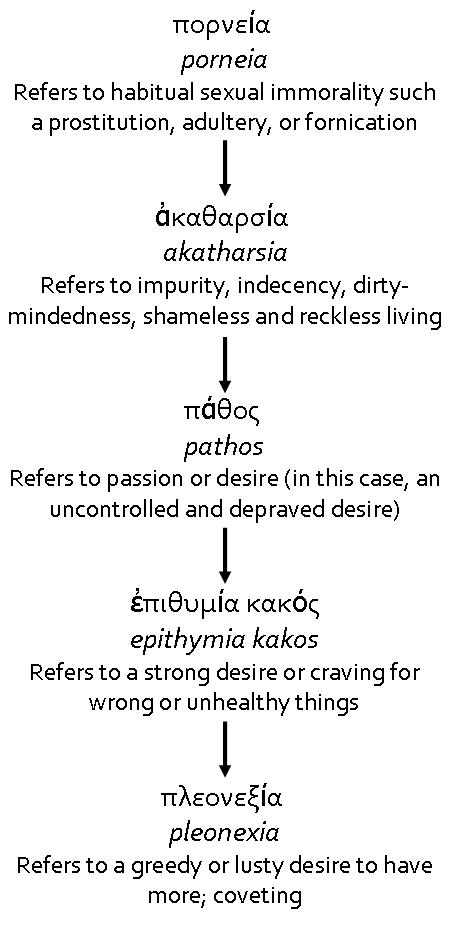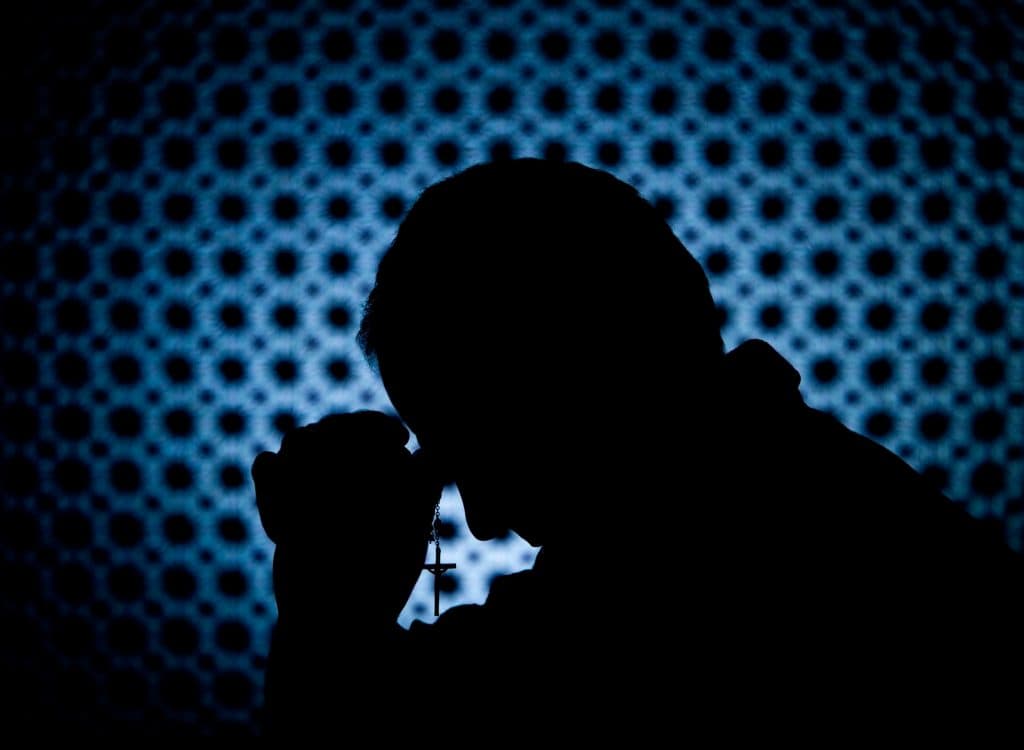In our culture, most people don’t see anything wrong with pornography. But watching porn is a sin against God. I don’t say this to condemn you or make you feel bad. Rather, I want you to find freedom from this sinful habit so you can live your life the way God intends.
You don’t have to remain trapped in shame and guilt; you can be free.
What’s Sinful About Porn?
I’ve heard people question whether porn is really sinful. But although the Bible doesn’t mention pornography specifically, it describes the kinds of thoughts and actions that go on with pornography and does call these sins:
- “Do not commit adultery” (Exodus 20:14).
- “Don’t lust in your heart for her beauty or let her captivate you with her eyelashes” (Proverbs 6:25).
- “But I tell you, everyone who looks at a woman lustfully has already committed adultery with her in his heart” (Matthew 5:28).
- “Therefore, put to death what belongs to your earthly nature: sexual immorality, impurity, lust, evil desire, and greed, which is idolatry” (Colossians 3:5).
So watching porn is sinful because it involves lust, which Jesus calls “adultery of the heart.” We know adultery is sinful because it’s mentioned directly in the Ten Commandments.
That should be enough to motivate us to avoid porn. But I think there’s a more profound reason. At a deeper level, watching porn is idolatry. Luke Gilkerson, a popular author and speaker on pornography addiction, explains:
“I am convinced every imbalance, every injustice, and every moral problem is under-girded by a ‘worship disorder.’ We choose to worship false gods. One of my personal idols was pornography. My attraction to it was not unlike religious devotion. To be sure, part of me hated pornography because it was so addicting and so controlling. But in reality, pornography was one of my gods.”
It might seem strange—what does porn have to do with worship? Notice that Colossians 3:5 gives a list of sins that Christians should avoid: sexual immorality, impurity, lust, evil desire, and greed, which is idolatry.
This list reveals how consuming porn is actually idolatry. It’s like peeling away layers like an onion, looking for the sin underneath the sin. At the bottom layer, watching pornography is like worshipping a false god.

Paul starts with outward behavior, moves to attitudes, and finally drills down deep to the place of desire. Deep within us, it is idolatry that drives our cravings for evil things.
Left to itself, this desire will pull you further and further away from God. But God’s will for your life is to restore your desire for Him.
My prayer for you is that God will give you freedom from the false worship of porn, so you can experience the fullness of life in Christ.
5 More Ways Watching Porn Is a Sin
1. It is sin against the porn performers.
Many people consider lusting after another person a “victimless crime.” But this is false. Even if you only watch amateur porn and never spend a dime on it, porn is a feeder system for sex trafficking. More viewers leads to a need for more variety, meaning more porn stars, who are often drugged and abused for your viewing pleasure.
On top of that, many porn websites do not regulate or enforce consent for all participants. In other words, it’s all too easy for anyone to post anything and make a profit off it. A teen boy could upload the nudes his girlfriend sent him, for example. Or someone could film himself sexually assaulting a drunk young woman and upload it. These photos and videos, which are uploaded and shared dozens or even hundreds of times, ruin the victims’ lives.1 Instead of loving them as victims, you may be gleaning a few moments of personal pleasure from the worst moment of their lives.
Even if the performers are voluntary, they may be selling their bodies from an extremely low sense of self-worth, possibly stemming from childhood abuse. Drugs are passed around freely to numb the pain (read the story of an ex-porn star to see what it’s really like). Again, I don’t say these things to shame you, but to emphasize the destructiveness of pornography.
2. It harms your body.
Paul says in 1 Corinthians 6:18-20, “Flee from sexual immorality. Every other sin a person commits is outside the body, but the sexually immoral person sins against his own body. Or do you not know that your body is a temple of the Holy Spirit within you, whom you have from God? You are not your own, for you were bought with a price. So glorify God in your body.”
This isn’t just a metaphorical point. Neuroscience has proven that porn hurts the viewer’s own brain. The instant access and infinite variety of today’s pornography make it a highly addictive supranormal stimulus.
For some men, this physical damage even becomes visible. The NoFap group on Reddit, for example, is dedicated to helping men quit porn because they found they literally couldn’t get an erection without watching porn.
While some call porn an expression of self-love, you are using your sexuality in a way other than what God intended, and whether you realize it or not, you are damaging your body and your mind.
3. It corrupts the Church.
Paul writes in 1 Corinthians 6:15, “Do you not know that your bodies are members of Christ? Should I, therefore, take the members of Christ and make them members of a prostitute? Never!”
Now, this verse talks about prostitution, but we know from Jesus’s teaching that it extends to the things we look at and think about. This means there’s a sense that what you do with your mind and body affects the Church as a whole. Every video you watch, every sext you send—you bring them with you every time you walk through the doors of your church or sit down for a Bible study.
Even if no one knows about your porn habit, it can weigh down believers around you. Paul’s point isn’t to make you feel worse than you do. Rather, he’s encouraging you to get help so you can be free from bondage to sin.
See related: 5 Big Questions About Christians and Porn
4. It’s a sin against your spouse.
We hinted at this in the “sin against your body” section. Porn warps your brain chemistry and even changes the way you think. That warping is negatively impacting your relationship with your spouse, whether or not you’re married yet.
1 Corinthians 7:4 makes it clear that your body belongs to your spouse; moreover, this verse is clearly in the context of sexuality. But, ongoing, habitual porn consumption is spending your sexuality on somebody who is not your spouse, and that in and of itself is unloving to your spouse.
See related: Porn in Marriage
All of this is still true even if you’re not married. If you are single and using porn, you’re carrying expectations you’ve built up through your porn use to your future wife or husband—expectations of what your sex life will be and expectations of finding personal satisfaction and fulfillment without a thought toward his or her needs. It’s even possible that porn is hindering your ability to find a partner.
5. It affects those around us.
The truth is, porn makes us look at everyone differently. One study showed that men who watched porn three hours a week showed a 46% drop in support for women’s rights compared to those who did not watch porn at all. Among women, it dropped 30%.2
Porn use makes us see each other as something less than fellow children of God. It makes us elevate the status of men and lower the status of women when, in reality, “There is neither Jew nor Greek, there is neither slave nor free, there is no male and female, for you are all one in Christ Jesus” (Galatians 3:28).
How to Repent From Watching Porn
If you feel convicted about the sinfulness of porn, take heart. You have started the path to forgiveness and healing. Once you realize that you’ve sinned, it’s natural to feel guilt for watching porn and even shame.
Confess to God
We have to own up to the sinfulness of porn before we can confess it. But God offers grace and redemption when you confess your sin (1 John 1:9). How do you confess your sin?
Pray and acknowledge to God what you’ve done. Ask for His forgiveness and grace, and that He would change the desires of your heart.
See here to learn more about praying against pornography.
Tell Someone Else
If you’re a Christian struggling with porn, you may have already done this first step. In fact, I’ve spoken with many people who have done this dozens of times, and it doesn’t seem to make a difference.
That’s because God doesn’t intend for us to keep our sins a private secret. As tough as it is, we need to open up about our struggle to someone else. James 5:16 says to confess our sins to one another.
Take Steps to Live Porn-Free
Ultimately, repentance is not just about saying, “I’m sorry, I messed up,” it’s about turning away from your sin. This doesn’t mean you have to white-knuckle yourself away from porn. Rather, take advantage of the many resources available to walk you through the path to freedom.
1 Adam Westbrook and Lindsey Van Dyke, “Why Do We Let Corporations Profit from Rape Videos?” New York Times, accessed at https://www.nytimes.com/2021/04/16/opinion/sunday/companies-online-rape-videos.html, August 16, 2021.
2 Dolf Zillmann and Jennings Bryant, “Shifting preferences in pornography consumption,” Communication Research, 13 (1986), available at https://doi.org/10.1177/009365086013004003.










The article is interesting and I am glad that as many people and companies as possible pay attention to the problems with pornography. I am now divorcing my husband because he has big problems with it. And he denies it. It is impossible to convince him, even after our children have found his “collection”! It’s not normal at all. Then your article https://www.covenanteyes.com/2021/08/16/is-watching-porn-a-sin/ helped me a lot. And I don’t want to live with my husband anymore, if only he understood that he has a problem, but no. And first of all I have to take care of children, by the way this episode will be a good reason for divorce, I looked for information about this https://midivorcepapers.com/
Hi Rose, if you are still together, I want you to understand that divorce is not the only way out. You two can be separated bit not divorced.
Divorce comes with its own wound that won’t go away easily and God hates divorce.
Pray for him while the separation and if he is accountable to a pastor, you both should schedule a meeting with the pastor.
Ensure your children don’t follow his steps. Better way is to expose them to this article and others in the covenant eyes website.
Excellent! Thanks for your detailed answer. Satan has told so many of us that Porn is ”No big deal”. That is A BIG LIE from the father of all lies.
So lovely and wonderful…thank you so much, for the love of God that you have shared. I really appreciate, God bless you.